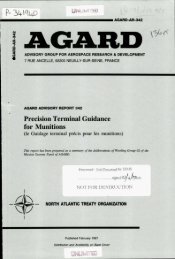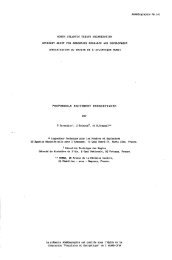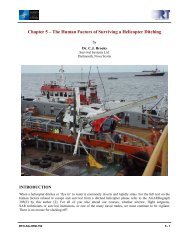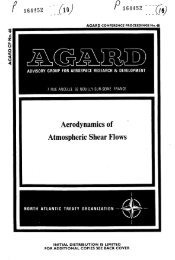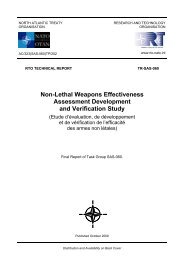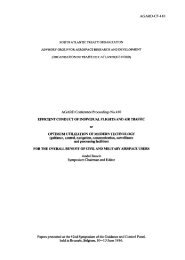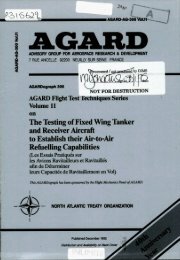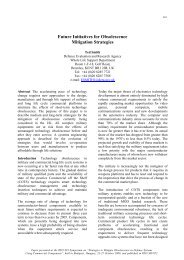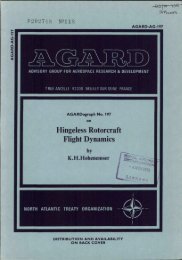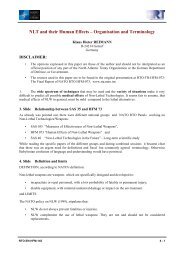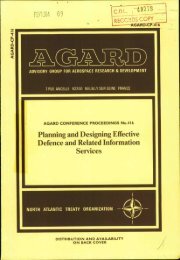More Intelligent Gas Turbine Engines - FTP Directory Listing - Nato
More Intelligent Gas Turbine Engines - FTP Directory Listing - Nato
More Intelligent Gas Turbine Engines - FTP Directory Listing - Nato
Create successful ePaper yourself
Turn your PDF publications into a flip-book with our unique Google optimized e-Paper software.
Chapter 1 – INTRODUCTION<br />
by<br />
Sanjay Garg (NASA Glenn Research Center) and<br />
Hany Moustapha (Pratt and Whitney Canada)<br />
With the increased emphasis on aircraft safety, enhanced performance and affordability, and the need to<br />
reduce the environmental impact of aircrafts, there are many new challenges being faced by the designers of<br />
aircraft propulsion systems. There is significant investment being made by various NATO countries in<br />
development of advanced controls and health management technologies that will help meet these challenges<br />
through the concept of <strong>Intelligent</strong> Propulsion Systems. The key enabling technologies for an <strong>Intelligent</strong><br />
Propulsion System (see Figure 1.1) are the increased efficiencies of components through active control,<br />
advanced diagnostics and prognostics integrated with intelligent engine control to enhance operational<br />
reliability and component life, and distributed control with smart sensors and actuators in an adaptive fault<br />
tolerant architecture. Development of appropriate sensors and actuation systems is critical to affordable and<br />
reliable implementation of the technologies for a more intelligent gas turbine engine.<br />
Active Control Technologies<br />
for enhanced performance<br />
and reliability, and reduced<br />
emissions<br />
- active control of<br />
combustor, compressor,<br />
vibration etc.<br />
- MEMS based control<br />
applications<br />
The objective of this report is twofold:<br />
Multifold increase in propulsion system Affordability, Capability<br />
Environmental Compatibility, Performance, Reliability and Safety<br />
Distributed, Fault-Tolerant Engine Control for<br />
enhanced reliability, reduced weight and optimal<br />
performance with system deterioration<br />
- Smart sensors and actuators<br />
- Robust, adaptive control<br />
Advanced Health<br />
Management technologies<br />
for self diagnostic and<br />
prognostic propulsion<br />
system<br />
- Life usage monitoring and<br />
prediction<br />
- Data fusion from multiple<br />
sensors and model based<br />
information<br />
Figure 1.1: Advanced Control and Health Management Technologies<br />
for “<strong>More</strong> <strong>Intelligent</strong> <strong>Engines</strong>” [1.1], [1.2], [1.3].<br />
1) Help the “Customers” (NATO defence acquisition and aerospace research agencies) understand the<br />
state-of-the-art of intelligent engine technologies, how these technologies can help them meet<br />
challenging performance and operational reliability requirements for aircraft engines, and what<br />
investments need to be made in sensor and actuator technologies to enable the various capabilities of<br />
“<strong>Intelligent</strong> <strong>Engines</strong>” so that limited resources are used in a most efficient manner; and<br />
RTO-TR-AVT-128 1 - 1



